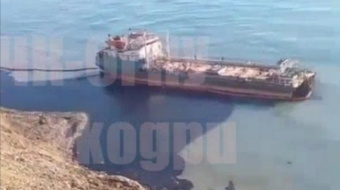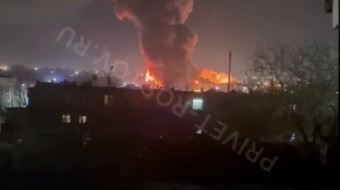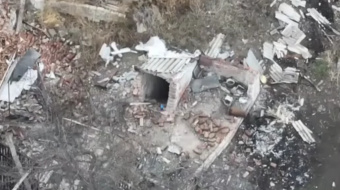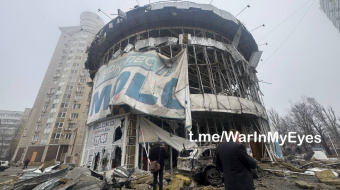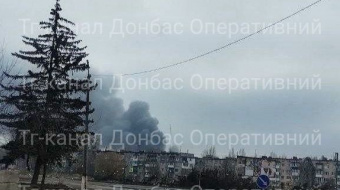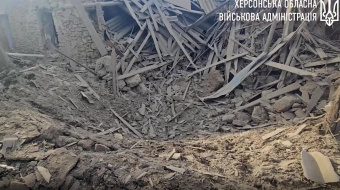There is a lot of absurdity in the memory of the perished. This is not the case. Part 2
There is a lot of absurdity in the memory of the perished. This is not the case. Part 2
“God take away the best”, “heroes don’t die, enemies die”, “for personal courage and heroism”, “for high patriotism and unprecedented loyalty to oath”…
There is a lot of absurdity in the memory of the perished. This is not the case. Part 1
One more task which distracted us from combat tent-setting-up training was reopening the guns.
In reality the guns needed serious repairs. However, it goes without saying, that none of us had repaired howitzers before, and we did not have any skills for doing that.
Vitya Katanov was among the first in doing everything: setting up memorable tents or repairs and maintenance of guns. It was not necessary to beg him or to find him. His practical skills of working at a plant were very useful as well as the skills of a radio ham when we equipped our tent.
- Guys, you must win, and we will arrange a banquet for you! – That was written on the huge radio in our tent which was presented to us by volunteers.
Vitya’s mother brought him the tape recorder, so we had a chance to listen to his recordings. Katanov remained the same: he was modest, shy, and smiling. And it was quite clear that he was comfortable in and he liked that friendly environment. He was getting more animate and felt himself more and more at ease. His skills were in demand. He was a member of the team. He was respected and his opinions were considered.
There was war not far away. We loaded ammunition for the front several times. At last the day came when we loaded ammunition for ourselves.
Just before the departure, Vitya’s Mom came to see Vitya at the firing field. She brought her famous delicious pies and a lot of other yummy things.
- Mom, we are leaving tomorrow, – a different, changed, but loved and dear son told her. – We should say good bye to each other. I have only you; you have only me. I have to go.
- Go, sonny. I understand. Go. But don’t look back, – the Mom answered.
At that moment she made a wish: if he came up to the tent and did not turn back, everything would be fine. Vitya came almost up to the tent and then suddenly turned back and happily waved goodbye to her.
At that moment we were loading our battery equipment on trucks. We were leaving for the ATO.
We were absolutely not ready for hostilities; the same about our vehicles and equipment. The vehicles were breaking down all the time.
We got to our destination – the settlement of Starobeshevo – late in the evening, and there were lots of adventures and problems on the way.
We were met by colonel Musiyenko, representative of the staff. He met us with an expatiation in which he exalted himself and spoke about us using a lot of four-letter words. He emphasized March 8 several times as, according to him, that date was the beginning of his service in the ATO zone.
He pointed to the highest points in front of some trees and told us to deploy both batteries there.
According to his order, the trenches were to be dug out among some ruins. It was impossible to do that. Some gun-crew members prepared the trenches for themselves; others were very tired to do that.
We placed the aiming circle in the wrong place. We did not have a lot of experience of targeting howitzers, and we could not do it at all at night.
The gun caps could not be removed. Everything was used to remove them –axes, screws, and even spades.
As soon as were managed to do the minimum things to get ready for a battle, a senior officer ran by and said in a low voice, “Crews to the guns!”
It was dark, and we hustled and bustled, and use lanterns and mobile phones to get some light. The aimers could not aim the guns. Some people were shouting, others were cursing. Then the battalion commander ran from one gun to another and aimed them practically by himself.
At last we managed to open fire and hit the targets.
The view from the top of the hill was amazing: on the one side – the lights of Donetsk; on the other side – Ilovaisk. In front of us there was a lake of Starobeshevo thermal power plant.
In some time we shelled again, and again in the morning.
- We’ll change the position at 7:00, – the combat said.
- Do we have time to have some coffee? Maybe, that was the main question for a lot of us.
The answer came very soon, at 6:45. It was the counter attack.
The explosions were very close.
At that time we did not know that Russian troops crossed the border, and our emplacement was known to them very well.
Shells hit our emplacement, and our guns, and our trucks, and our ammunition… They were on fire and exploded. Dry high grass around started burning too.
People were scattering in all directions, just to get from the emplacement as far as possible, and as quickly as possible…
The first battle made a powerful impression.
We stopped in the settlement. When the shelling stopped, the guys went to the emplacement to see whether there were people.
They found Vitya under a tree behind the emplacement. A shell fragment cut his inguinal artery off.
The blood lost was huge and very fast. Later we found out that people stay alive during several seconds when they are wounded like that. Neither Vitya himself, nor anybody else could save him.
As a rule, thick lines of trees get the major part of fragments. In this case it did not help. Vitya’s new boot was not destroyed, but Vitya had no chance to survive.
…Vitya’s Mom became a very dear person for all the militaries of the battery. She did not forget us and sent us food, and warm clothes, and some equipment. A lot of people helped us, but her help was the most valuable to us.
Her name was Mariya.
Vitya was about 33.
life.pravda.com.ua
New service "Explain Ukraine". This is a daily mailout of three articles which were written about the situation in the Donbas by Donbas journalists and translated into English. Honest vision of people who work in the field is unbiased and fresh which is crucial in the world which is full of desinformation and propaganda. We try to share this vision in out daily mailout. You can subscribe here.










